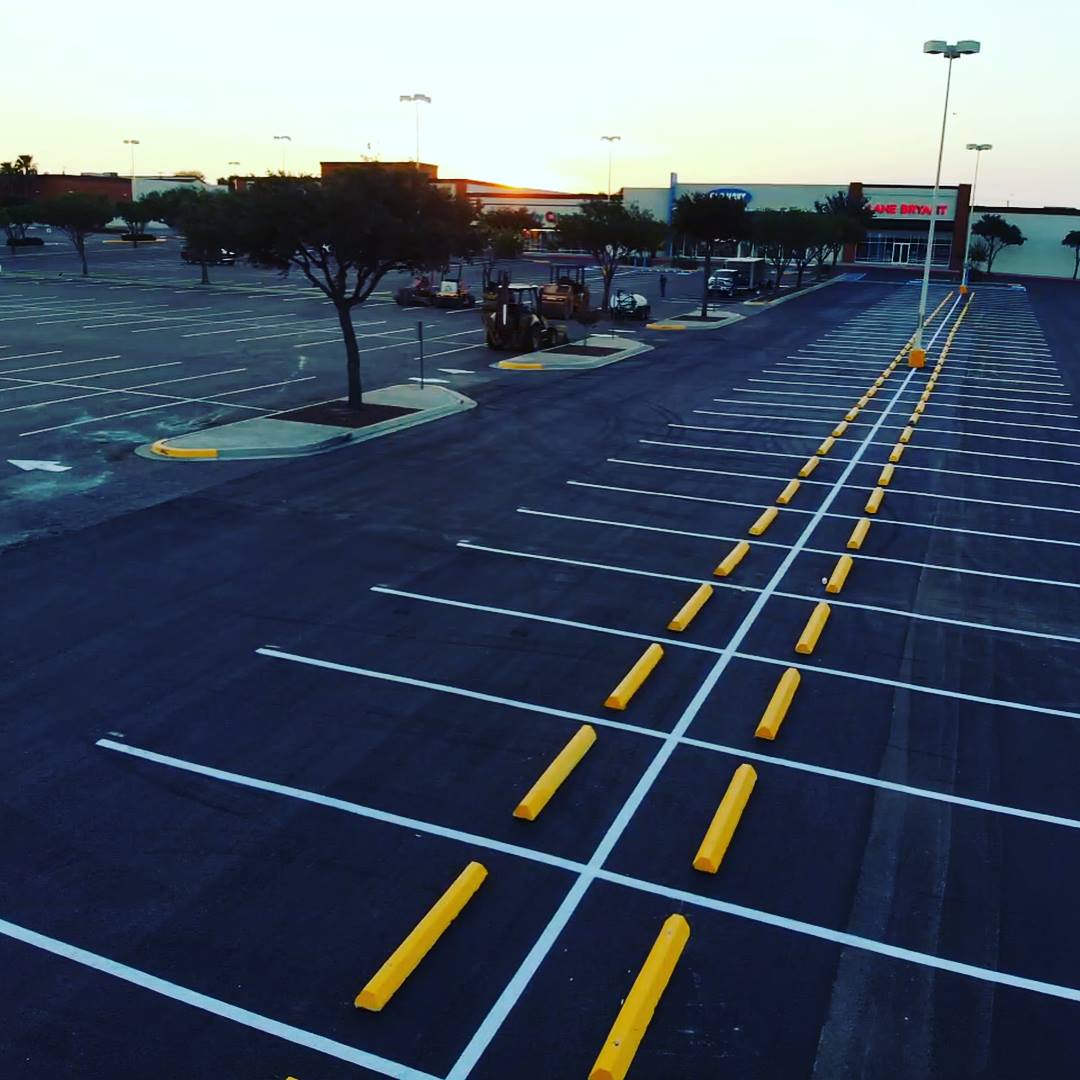
What Is the Importance of Temperature for Asphalt Sealcoating?
Both the surface and air temperature must be considered. When sealcoating Houston pavements, contractors typically find that there is an insignificant difference between the two temperatures, but there can occasionally be a discrepancy. Sealcoating manufacturers usually place the minimum temperature at around 50 degrees Fahrenheit, so most asphalt sealcoating contractors will not attempt a job unless the temperature of the surface and the air are above that minimum. If it is too cold, the sealant will take an excessively long time to cure, and it is possible that it will never completely cure.
How Does Humidity Affect Asphalt Sealcoating?
The higher the relative humidity, the longer it will take for the water in the sealant mix to evaporate. Parking lot maintenance companies are acutely aware that the ideal humidity level of 50% recommended by sealant manufacturers is highly unlikely to appear in the Houston area. Therefore, parking lot maintenance contractors prefer to choose a day on which the humidity is as low as possible. If the other factors are borderline, the humidity could play a large role in the decision to sealcoat a pavement. Otherwise, asphalt sealcoating contractors are very accustomed to delivering quality work at much higher humidity levels. However, no sealant should ever be applied if the relative humidity is over 90% or so. The air will be so saturated that the water in the sealant will have no place to go, so evaporation stops.
What Impact Does the Wind Speed Have When Sealcoating Houston Pavements?
Asphalt maintenance contractors prefer a wind speed of at least 3 mph; this helps move the water molecules that have escaped into the air away from the surface of the pavement, thereby allowing more water to escape. However, too much wind can be a bad thing. On a hot day, a strong wind can make the very top layer of sealant dry too quickly, and this can make the sealant crack or flake. In addition, an intense wind makes it more difficult to spray on an even coat of sealant, and the wind could potentially blow the sealant onto sidewalks, fences, or other structures.
Why Do Asphalt Contractors Worry About Sunlight When Sealcoating Houston Pavements?
The sun creates and renews warmth, so it helps a sealant cure properly. Most sealant manufacturers recommend exposing the fresh sealant to a minimum of three hours of direct sunlight. If temperatures are borderline, additional time may be needed even on a sunny day. If the day is heavily overcast, many asphalt sealcoating contractors will not apply a sealant unless they include an additive in the mix.
Let Marathon Help With All Your Paving Needs
Whether you need asphalt resurfacing, sealcoating, pavement repair, parking lot striping, asphalt paving, parking lot maintenance, asphalt milling, bollards, thermoplastic markings, concrete repair, ADA compliance, concrete installation, marking removal, asphalt crack repair, or parking lot signage, we can help. Marathon Solutions is a respected, experienced paving company serving many towns in and around Harris County. If you would like us to work up a free quote for you, submit our online form, call 800-879-1147, or email HQ@Marathon-Solutions.com.


